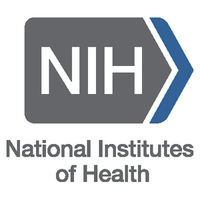预约演示
更新于:2025-05-07
MGMT
更新于:2025-05-07
基本信息
别名 6-O-methylguanine-DNA methyltransferase、Methylated-DNA--protein-cysteine methyltransferase、MGMT + [3] |
简介 Involved in the cellular defense against the biological effects of O6-methylguanine (O6-MeG) and O4-methylthymine (O4-MeT) in DNA. Repairs the methylated nucleobase in DNA by stoichiometrically transferring the methyl group to a cysteine residue in the enzyme. This is a suicide reaction: the enzyme is irreversibly inactivated. |
关联
12
项与 MGMT 相关的药物作用机制 APE1抑制剂 [+1] |
在研适应症 |
非在研适应症- |
最高研发阶段临床前 |
首次获批国家/地区- |
首次获批日期1800-01-20 |
靶点 |
作用机制 MGMT抑制剂 |
在研机构 |
在研适应症 |
非在研适应症- |
最高研发阶段临床前 |
首次获批国家/地区- |
首次获批日期1800-01-20 |
靶点 |
作用机制 MGMT抑制剂 [+1] |
在研适应症- |
最高研发阶段药物发现 |
首次获批国家/地区- |
首次获批日期1800-01-20 |
35
项与 MGMT 相关的临床试验NCT05052957
Phase II Trial O6-benzylguanine(BG) and Temozolomide(TMZ) Therapy of Glioblastoma Multiforme (GBM) With Infusion of Autologous P140K MGMT+Hematopoietic Progenitors to Protect Hematopoiesis
This phase II trial studies the effect of P140K MGMT hematopoietic stem cells, O6-benzylguanine, temozolomide, and carmustine in treating participants with supratentorial glioblastoma or gliosarcoma who have recently had surgery to remove most or all of the brain tumor (resected). Chemotherapy drugs, such as 6-benzylguanine, temozolomide, and carmustine, work in different ways to stop the growth of tumor cells, either by killing the cells, by stopping them from dividing. Placing P140K MGMT, a gene that has been created in the laboratory into bone marrow making the bone more resistant to chemotherapy, allowing intra-patient dose escalation which kills more tumor cells while allowing bone marrow to survive.
开始日期2023-01-20 |
申办/合作机构 |
NCT02343666
A Clinical Trial of Gene-Modified Stem Cells to Generate HIV-Resistant Cells in Conjunction With Standard Chemotherapy for Treatment of Lymphoma in Patients With HIV Infection
This pilot phase I trial studies the side effects and best dose of human immunodeficiency virus (HIV)-resistant gene modified stem cells in treating HIV-positive patients who are undergoing first-line treatment for Hodgkin or Non-Hodgkin Lymphoma. Stem cells are collected from the patient and HIV-resistance genes are placed into the stem cells. The stem cells are then re-infused into the patient. These genetically modified stem cells may help the body make cells that are resistant to HIV infection.
开始日期2016-08-15 |
申办/合作机构 |
NCT01769911
AUTOLOGOUS TRANSPLANTATION AND STEM CELL BASED-GENE THERAPY FOR THE TREATMENT OF HIV-ASSOCIATED LYMPHOMA
This clinical trial studies genetically modified peripheral blood stem cell transplant in treating patients with HIV-associated non-Hodgkin or Hodgkin lymphoma. Giving chemotherapy before a peripheral stem cell transplant stops the growth of cancer cells by stopping them from dividing or killing them. After treatment, stem cells are collected from the patient's blood and stored. More chemotherapy or radiation therapy is then given to prepare the bone marrow for the stem cell transplant. Laboratory-treated stem cells are then returned to the patient to replace the blood-forming cells that were destroyed by the chemotherapy and radiation therapy
开始日期2015-02-01 |
申办/合作机构 |
100 项与 MGMT 相关的临床结果
登录后查看更多信息
100 项与 MGMT 相关的转化医学
登录后查看更多信息
0 项与 MGMT 相关的专利(医药)
登录后查看更多信息
5,891
项与 MGMT 相关的文献(医药)2025-12-01·Molecular Biology Reports
Aberrant DNA methylation of EDNRB, MGMT and TIMP3 gene promoters in saliva of head and neck carcinoma patients as a diagnostic tool
Article
作者: Sharma, Praveen ; Purohit, Purvi ; Shekhawat, Jyoti Kanwar ; Choudhury, Bikram ; Sharma, Jyoti ; Banerjee, Mithu ; Chugh, Ankita
2025-07-01·Analytical Biochemistry
A predictive model for MGMT promoter methylation status in glioblastoma based on terahertz spectral data
Article
作者: Tao, Rui ; Zhao, Xiaoyan ; Zhang, Zhaohui ; Sun, Peiyuan ; Sun, Zhiyan ; Yang, Pei ; Wu, Xianhao ; Zheng, Shaowen ; Du, Minghui ; Zhang, Tianyao
2025-07-01·Seminars in Cancer Biology
Pancreatic neuroendocrine neoplasms (pNENs): Genetic and environmental biomarkers for risk of occurrence and prognosis
Review
作者: Gentiluomo, Manuel ; Nikas, Ilias ; Marinoni, Ilaria ; Pedraza-Arevalo, Sergio ; Castano, Justo P ; Strosberg, Jonathan ; Biamonte, Paolo ; Cives, Mauro ; Perren, Aurel ; Nosáková, Lenka ; Kapitanović, Sanja ; Pellè, Eleonora ; Capurso, Gabriele ; Berković, Maja Cigrovski ; Tacelli, Matteo ; Marinovic, Sonja ; Campa, Daniele
129
项与 MGMT 相关的新闻(医药)2025-04-20
·肿瘤界
点击蓝字 关注我们《健康中国行动—癌症防治行动实施方案(2023—2030年)》提出,到2030年,癌症防治核心知识知晓率达到80%以上。科学普及,言之有据。为保证肿瘤知识科普的权威性和严谨性,中国抗癌协会依托《中国肿瘤整合诊治指南》即CACA指南,按照疾病“防筛诊治康”的全流程管理体系,连续四年撰写了《中国肿瘤防治核心科普知识》,以CACA指南核心观点为创作源,全面推进我国肿瘤防治权威科普创作和推广。2025年全国肿瘤防治宣传周的主题为“CACA指南,我知你知,全程管理,全息发力”。中国抗癌协会组织专家编写了《中国肿瘤防治核心科普知识(2025)》,覆盖28个瘤种、41个技术,以通俗易懂的形式为大家分享核心知识,摘取部分内容,供参阅使用。问题1:目前是否有可行的医学干预手段来预防脑胶质瘤,如疫苗接种或药物预防,研究进展如何?核心观点:尚无疫苗或药物可有效预防脑胶质瘤。观点解读:目前没有任何疫苗或药物被证明能预防脑胶质瘤。因为其发病机制尚 未完全明确,科学家无法针对特定病因开发预防性药物,当前医疗手段仍以治疗为主而非预防。问题2:组织病理与分子病理整合诊断是脑胶质瘤诊断的重要依据,常用的分子病理检测指标有哪些,其临床意义是什么?核心观点一:IDH 基因突变是判断肿瘤类型和预后的关键指标。观点解读:IDH 基因突变就像肿瘤的“身份标签”,如果检测到突变,说明可能是恶性程度较低的星形细胞瘤或少突胶质细胞瘤,患者生存期相对较长。如果没有突变,则更可能是恶性程度极高的胶质母细胞瘤,生存时间更短。核心观点二:1p/19q 共缺失提示化疗敏感和良好预后。观点解读:1p/19q 染色体同时缺失是少突胶质细胞瘤的“特征密码”,这类患者对放疗、化疗反应更好,治疗效果更持久。医生可根据这个指标选择更适合的治疗方案。核心观点三:MGMT 甲基化预测化疗药物效果。观点解读:MGMT 基因如果发生甲基化(相当于被“锁住”),患者使用替莫唑胺等化疗药效果更好,因为药物能更有效杀死肿瘤细胞。这对制订个体化化疗方案非常重要。核心观点四:EGFR 扩增提示肿瘤恶性程度高。观点解读:EGFR 基因过度扩增就像肿瘤的“加速器”,常见于恶性程度最高的胶质母细胞瘤,这类肿瘤生长快、易复发,但同时也可能成为未来靶向治疗的突破口。核心观点五:H3K27M 突变警示高度恶性脑干胶质瘤。观点解读:H3K27M 突变主要出现在脑干、丘脑等中线部位的胶质瘤,相当于“危险信号灯”,这类肿瘤多见于儿童和青少年,常规治疗反应差,需要更积极的治疗方案。核心观点六:BRAF 突变助力儿童胶质瘤靶向治疗。观点解读:在部分儿童低级别胶质瘤中发现的 BRAF V600E 突变,相当于给肿瘤打了“特殊标记”,使用针对该突变的靶向药物能精准打击癌细胞,为患儿提供新的治疗希望。问题3:在分子病理检测技术中,免疫组化染色、荧光原位杂交等各有什么特点和局限性,如何选择合适的检测技术?核心观点一:免疫组化染色简便经济,适合常规蛋白检测,但准确性受抗体影响。观点解读:免疫组化通过染色直接在组织切片上检测蛋白质,操作简单、成本低,适合医院日常使用。但检测结果可能因抗体质量不稳定或染色条件差异出现误差,且无法检测基因突变等分子层面变化。核心观点二:FISH 精准检测基因异常,但成本高且仅限已知目标。观点解读:FISH 技术能直接识别基因扩增、缺失或重排,结果更精准。但需要专业设备和技术人员,费用较高,且只能检测已知的特定基因异常,无法发现未知变异。核心观点三:检测目标决定技术,蛋白用免疫组化,基因选 FISH。观点解读:选择技术前需明确检测对象:若测蛋白质(如肿瘤标记物)选免疫组化;若测基因突变、融合等选 FISH。两者检测的分子类型不同,不可互相替代。核心观点四:样本质量与实验室条件限制技术选择。观点解读:样本数量少或质量差(如组织降解)时,优先选操作更简便的免疫组化。若实验室设备齐全、预算充足且技术成熟,可选用 FISH 进行深入基因分析。核心观点五:临床需求是技术选择的最终依据。观点解读:若需快速筛查或常规诊断,选免疫组化;若需指导靶向治疗或判断预后(如检测特定基因突变),即使成本高也需用 FISH。根据治疗决策需求灵活选择。问题4:如何根据脑胶质瘤的分子分型制订个性化的治疗方案,分子分型对预后评估有何重要意义?核心观点一:IDH 突变状态决定治疗方案选择。观点解读:IDH 基因突变的患者对化疗和放疗更敏感,标准方案是替莫唑胺联合放疗;而 IDH 未突变的患者预后较差,需采用更强治疗策略,如增加化疗剂量或尝试靶向药物。核心观点二:1p/19q 共缺失指导化疗方案调整。观点解读:存在 1p/19q 共缺失的少突胶质细胞瘤患者,推荐 PCV 化疗联合放疗;无此缺失的患者需个体化调整治疗,可能选择其他药物或方案。核心观点三:MGMT 甲基化状态影响化疗药物效果。观点解读:MGMT 启动子甲基化的患者对替莫唑胺反应较好,优先使用;未甲基化的患者可能需尝试其他替代疗法,如免疫治疗或临床试验药物。核心观点四:TERT 突变提示需更积极治疗干预。观点解读:TERT 启动子突变与预后差相关,这类患者需早期强化治疗,如加大放化疗强度或结合新型疗法,以延缓肿瘤进展。核心观点五:分子分型精准预测生存期及复发风险。观点解读:IDH 突变型、1p/19q 共缺失的患者生存期较长;通过分子特征可预估复发时间,帮助制订随访频率和预防措施,如定期影像检查或提前干预。核心观点六:综合分析分子特征优化治疗和预后评估。观点解读:结合 IDH、1p/19q、MGMT 等分子指标,医生能制订针对性治疗方案,同时更准确判断患者生存期、复发可能性和治疗反应,实现精准医疗。问题5:当诊断存在困难时,多学科会诊在脑胶质瘤诊断中如何发挥作用,涉及哪些学科的协作?核心观点一:整合多学科信息提升诊断准确性。观点解读:当诊断困难时,神经外科、放射科和病理科共同分析患者情况。放射科通过 MRI/CT 影像判断肿瘤位置和大小,病理科检查肿瘤组织的类型和恶性程度,神经外科结合手术标本验证,多方数据交叉核对,减少误诊风险。核心观点二:多学科协作制订个性化治疗方案。观点解读:不同专家根据患者具体情况分工协作。例如,肿瘤内科和放疗科评估是否需要化疗或放疗;分子病理团队检测基因突变,指导靶向药物选择;神经外科评估手术可行性,最终综合各方意见形成最适合患者的治疗计划。核心观点三:分子检测指导精准治疗方向。观点解读:分子病理科通过检测肿瘤的基因突变(如 IDH、1p/19q 等) ,明确胶质瘤的分子分型。这些结果能帮助医生判断肿瘤的恶性程度、预测治疗效果,从而选择靶向药物或调整放化疗方案,避免“一刀切”治疗。核心观点四:术后康复与全程护理缺一不可。观点解读:康复医学科评估患者术后肢体功能、语言能力等,制订康复训练计划;护理团队帮助管理头痛、癫痫等症状,并提供心理疏导。这种协作不仅能提高生活质量,还能及时发现复发迹象。核心观点五:多学科决策减少单一视角局限性。观点解读:单一科室可能侧重自身领域(如外科倾向于手术),而 MDT 通过集体讨论平衡风险与获益。例如,对老年体弱患者,可能放弃高风险手术,改用放疗 + 靶向药的综合方案,确保治疗安全有效。问题6:外科手术是脑胶质瘤的首选治疗方法,如何在保证安全的前提下,最大限度地切除肿瘤,降低复发风险?核心观点一:术前精准评估肿瘤位置和生物学特性。观点解读:手术前通过 MRI、功能 MRI 等影像技术,明确肿瘤范围和周围关键功能区的关系,避免损伤重要脑区。同时检测 IDH 突变等分子标志物,了解肿瘤恶性程度,为制订手术方案提供依据。核心观点二:术中实时导航联合显微技术精准切除。观点解读:手术中使用显微镜精细操作,配合神经导航和术中 MRI/CT 实时更新肿瘤位置,既最大限度切除肿瘤,又减少对正常脑组织的误伤, 降低术后功能障碍风险。核心观点三:功能区肿瘤采用清醒手术保护神经功能。观点解读:对涉及语言、运动等功能的肿瘤,术中唤醒患者并监测脑电信号,让患者在清醒状态下配合指令测试功能区域,边测试边切除,既能切干净肿瘤,又能避免损伤功能区。核心观点四:术后综合治疗和定期复查防复发。观点解读:根据肿瘤残留情况和病理报告,针对性使用放疗、化疗等后续治疗。术后定期做影像复查,早发现残留或复发的小病灶,及时干预提高治疗效果。问题7:不同级别和分子分型的脑胶质瘤,手术切除范围和方式有何差异,如何选择最佳的手术策略?核心观点一:低级别胶质瘤按功能区选切除范围,辅助技术保功能。观点解读:低级别肿瘤若在无功能区,尽量多切;若靠近功能区,需用术中导航、电生理监测等技术辅助,适当减少切除量,避免损伤神经功能,比如语言或运动区域。核心观点二:高级别胶质瘤最大安全切除,荧光技术助精准切除。观点解读:高级别肿瘤恶性度高,手术需在保护功能前提下尽量多切。例如胶质母细胞瘤,可用 5-ALA 荧光技术标记肿瘤边界,切得更干净,减少残留,为放化疗创造更好条件。核心观点三:分子分型影响预后,手术仍以肿瘤位置为主。观点解读:虽然 IDH 突变等分子特征可预测肿瘤生长快慢,但手术切多少主要看肿瘤位置是否影响大脑功能,而非单纯依赖这些分子指标。比如少突胶质细胞瘤即使有基因突变,仍优先考虑位置决定切法。核心观点四:最佳策略需综合肿瘤特征、患者状况及多学科协作。观点解读:手术方案要结合肿瘤大小位置、患者年龄和身体情况,术中实时监测技术(如导航)辅助医生判断,术后联合放化疗等多学科团队制订后续治疗,确保效果和安全性平衡。问题8:放疗在脑胶质瘤治疗中如何根据患者情况优化剂量和靶区,以提高疗效并减少副作用?核心观点一:按肿瘤级别调整放疗剂量,分次精准照射。观点解读:高级别胶质瘤(如 GBM)恶性程度高,需 60 Gy 分 30 次照射以控制肿瘤; 低级别胶质瘤生长较慢,用 50 ~ 54 Gy 即可,分次照射能减少对正常脑组织的损伤。剂量选择需结合患者年龄和身体状况,如老年患者可能适当减量。核心观点二:靶区覆盖术后瘤腔及周围 2 ~ 3 厘米脑组织。观点解读:手术后需通过 MRI 精确定位残留肿瘤区域,并将照射范围扩大到瘤腔周边 2 ~ 3 厘米的脑组织,以消灭可能残留的微小癌细胞,降低复发风险。这一范围需根据肿瘤位置灵活调整,避开重要功能区。核心观点三:结合年龄、健康状况和分子特征制订个体化方案。观点解读:年轻、身体状态好(KPS 评分高)的患者可耐受更强治疗;分子特征(如 IDH 基因突变)提示肿瘤恶性程度低,可适度降低剂量。老年或体弱患者需减少剂量, 优先保护神经功能和生活质量。核心观点四:使用 IMRT/SRS 技术精准打击肿瘤,保护正常脑区。观点解读:调强放疗(IMRT)通过计算机精准控制射线角度和剂量,立体定向放 疗(SRS)可单次高剂量聚焦肿瘤。两者能最大限度保护语言、运动等关键脑区,减少记忆力下降、肢体无力等副作用。核心观点五:定期评估疗效并动态调整治疗计划。观点解读:治疗中每 2 ~ 3 周通过 MRI 和临床症状评估肿瘤变化。若肿瘤缩小明显, 可适当降低后续剂量;若进展或耐受性差,则调整照射范围或联合化疗、靶向治疗,在疗效和安全性间取得最佳平衡。问题9:针对不同类型的脑胶质瘤,如何选择合适的化疗方案,提高化疗效果并减轻不良反应?核心观点一:高级别胶质瘤首选 TMZ 同步放化疗,基因特征影响疗效。观点解读:术后尽早用放疗联合替莫唑胺(TMZ),再辅助化疗 6 个周期。若患者存在 MGMT 基因甲基化( 一种特定基因特征),TMZ 效果更显著。医生通过基因检测判断患者是否适合该方案,针对性用药可提升效果。核心观点二:低级别胶质瘤根据基因分型选择 PCV 或 TMZ 方案。观点解读:少突胶质细胞瘤若有 1p/19q 基因共缺失,优先选 PCV 方案(三种药 物联合);若无此基因变异,则选 TMZ。通过基因检测明确类型,避免无效治疗,减少副作用风险。核心观点三:儿童用药需避免影响生长发育,优选特定化疗药。观点解读:儿童身体处于发育阶段,需避开可能损伤器官或骨骼的药物。常用卡莫司汀、TMZ 或长春碱类药物,既控制肿瘤又降低对身高、智力等长期影响。问题10:肿瘤电场治疗、分子靶向治疗和免疫治疗等新型辅助治疗手段为脑胶质瘤患者带来了新希望,这些治疗方法的作用机制是什么,各自的适用范围和疗效如何?核心观点一:电场治疗干扰癌细胞分裂,延长胶质母细胞瘤生存期。观点解读:这种治疗通过低强度电场破坏肿瘤细胞分裂时的关键结构(纺锤体),让癌细胞无法增殖并死亡。主要用于新确诊或复发的胶质母细胞瘤患者,与常规放化疗配合使用,能明显延缓肿瘤复发时间,提高生存质量。核心观点二:靶向治疗需匹配基因突变,多数药物处于试验阶段。观点解读:针对特定基因突变(如 IDH 突变)设计药物,阻断肿瘤生长信号通路。但这类药物目前适用范围有限,仅在部分患者中有效,且大多数还在临床试验中验证疗效,尚未广泛应用。核心观点三:免疫治疗激活自身免疫系统,但适用人群有限。观点解读:通过免疫检查点抑制剂、CAR-T 细胞疗法等增强免疫细胞识别肿瘤的能力。目前对脑胶质瘤整体效果一般,仅特定携带免疫相关标志物的患者可能受益,多用于传统治疗失败后的尝试方案。问题11:对于复发的脑胶质瘤,应该如何综合评估病情,选择再次手术、放疗、化疗还是其他治疗方法,以延长患者生存期和提高生活质量?核心观点一:全面评估复发情况及患者整体状态。观点解读:通过 MRI 等影像检查明确肿瘤位置和范围,结合患者年龄、身体状态、初次治疗反应及复发时间,判断适合的治疗方向。例如,若患者体能较好且复发灶较局限,可能更适合积极治疗。核心观点二:条件允许时优先考虑再次手术。观点解读:若复发肿瘤范围小、可完全切除,且患者身体能承受手术,优先手术切除可快速减轻肿瘤负担,缓解头痛等症状,还能获取最新病理信息指导后续用药,为延长生存争取机会。核心观点三:精准放疗降低脑组织损伤风险。观点解读:初次未放疗或间隔 1 年以上的复发患者,可采用立体定向放疗等先进技术,用高精度射线集中消灭肿瘤,减少对周围正常脑细胞的伤害,避免记忆力下降等副作用。核心观点四:根据耐药情况调整化疗方案。观点解读:若初次化疗药物(如替莫唑胺)已耐药,可换用贝伐单抗等新药,或调整用药周期。例如,低剂量长期服药可能延缓耐药,需结合患者耐受度制订个性化方案。核心观点五:靶向与电场治疗提升疗效。观点解读:通过基因检测选择匹配的靶向药,如 IDH 突变患者可用特定抑制剂;联合电场治疗(戴设备产生电场干扰癌细胞分裂),能延缓复发且副作用小,适合无法耐受放化疗的患者。核心观点六:多学科协作平衡治疗与生活质量。观点解读:神经外科、肿瘤科等多学科团队根据患者需求,选择既能延长生存又减少副作用的方案,例如高龄体弱者以控制水肿、癫痫为主,而非激进治疗, 同时提供心理疏导改善生活信心。问题12:在脑胶质瘤的治疗过程中,如何进行有效的症状管理,如控制癫痫发作、缓解颅内压增高等,提高患者的生活质量?核心观点一:抗癫痫药需按发作类型选择,无发作史者不预防用药。观点解读:脑胶质瘤患者若出现癫痫发作,医生会根据发作类型选择卡马西平、左乙拉西坦等药物控制症状。但如果患者从未发生过癫痫,指南不建议提前用这类药物预防,因为可能增加副作用风险且无明确益处。核心观点二:多措施降颅压,激素使用需警惕副作用。观点解读:颅内压增高会引起头痛、呕吐等症状。患者可抬高床头 30°促进血液回流,减少输液量避免加重脑水肿。医生会短期用地塞米松等激素减轻水肿,但长期用激素可能导致血糖升高、免疫力下降,需密切监测。核心观点三:阶梯镇痛管理头痛,非阿片类优先。观点解读:头痛患者先用布洛芬等非甾体抗炎药缓解,效果不佳时再考虑弱阿片类药物。这种阶梯式用药既能有效止痛,又能减少强效药物成瘾或便秘等副作用。核心观点四:心理干预 + 认知训练改善生活质量。观点解读:脑胶质瘤患者常因疾病产生焦虑、抑郁情绪。心理医生会通过沟通疏导负面情绪,同时指导患者进行记忆、注意力等认知训练,帮助恢复基本生活能力,减轻家庭照护负担。问题13:多学科整合诊治(MDT to HIM)模式在脑胶质瘤治疗中如何实施,各学科之间如何协作,以制订最佳的治疗方案?核心观点一:多学科协作制订手术方案,保护脑功能。观点解读:神经外科医生在手术前联合其他科室,根据患者肿瘤位置、病理类型和影像结果,共同规划手术切除范围,确保在最大限度切除肿瘤的同时,避免损伤重要脑区功能,如语言或运动区域。核心观点二:精准放疗化疗需整合病理及影像数据。观点解读:放疗科利用影像科提供的肿瘤三维定位信息,精准锁定放疗区域;肿瘤内科根据病理科检测的基因突变结果,选择针对性化疗药物,减少对正常细胞的伤害,提高治疗效果。核心观点三:病理影像双支撑奠定治疗基础。观点解读:病理科通过显微镜和基因检测明确肿瘤恶性程度及分子特征,影像科用核磁共振(MRI)等技术评估肿瘤大小和扩散情况,两者共同为手术、放疗和化疗方案提供关键依据。核心观点四:康复护理全程介入提升生存质量。观点解读:康复科在术后早期介入,通过物理治疗帮助恢复肢体功能;护理团队提供疼痛管理、心理疏导及居家护理指导,减轻治疗副作用对日常生活的影响。核心观点五:定期多学科会诊动态调整方案。观点解读:各科室医生每周召开讨论会,结合患者最新的检查结果和治疗反应,共同调整方案。例如术后发现残留肿瘤,放射科会重新计算放疗剂量,内科同步更新化疗周期。核心观点六:以患者为中心整合医疗资源。观点解读:从确诊到康复,各科室打破专业壁垒,共享患者数据。比如基因检测发现特定突变,内科立即匹配靶向药,护理团队同步指导用药注意事项,确保治疗精准且人性化。问题14:临床试验在脑胶质瘤治疗研究中具有重要意义,患者参与临床试验的利弊有哪些,如何选择合适的临床试验?核心观点一:参与试验利弊并存,权衡新疗法与未知风险。观点解读:患者有机会获得前沿治疗方案和更严密的医疗监测,甚至可能延长生存期,但新疗法可能存在未知副作用,且可能被分配到对照组无法使用新药。参与前需综合评估潜在获益与风险。核心观点二:优先选择中后期试验,安全有效更有保障。观点解读:Ⅱ期或Ⅲ期临床试验已通过初期验证,安全性和疗效数据更充分,相较于早期试验风险更低,更适合多数患者参与。核心观点三:结合病情和医生建议筛选合适试验。观点解读:患者需与主治医生充分沟通,根据自身肿瘤类型、身体状况和治疗目标选择匹配的试验,避免盲目参与导致疗效不佳或风险增加。核心观点四:审查试验机构资质,确保操作规范性。观点解读:选择有丰富经验和正规资质的医疗机构参与试验,能保障治疗流程的规范性和数据的可靠性,降低安全隐患。核心观点五:全面知情同意是参与必要前提。观点解读:患者需充分了解试验目的、流程、潜在风险和权益,自愿签署知情同意书, 确保自主决策权,避免后续纠纷。本文摘录自《中国肿瘤防治核心科普知识(2025)》推荐阅读● 《中国肿瘤防治核心科普知识(2025)》合集声明:本文由“肿瘤界”整理与汇编,欢迎分享转载,如需使用本文内容,请务必注明出处。来源:中国抗癌协会科普平台官微编辑:lagertha审核:南星
疫苗核酸药物信使RNA
2025-04-16
MELBOURNE, Australia and INDIANAPOLIS, IN, USA I April 16, 2025 I
Telix Pharmaceuticals Limited (ASX: TLX, NASDAQ: TLX, Telix, the Company) today announces preliminary results from the Phase 2 IPAX-Linz study of TLX101 (
131
I-iodofalan
1
) in recurrent high-grade glioma (brain cancer), substantiating the patient benefit seen in the IPAX-1 study
2
.
IPAX-Linz is a single-arm Phase 2 investigator-initiated trial (IIT). IPAX-Linz evaluates the safety, tolerability and preliminary efficacy of TLX101 therapy, in combination with external beam radiation therapy (EBRT). The target patient population is patients at first or second recurrence with high-grade gliomas (HGG), including glioblastoma.
Treatment with TLX101 was well tolerated with no serious adverse events reported. IPAX-Linz demonstrated encouraging preliminary efficacy data, indicating a median overall survival (OS) of 12.4 months from the initiation of treatment with TLX101, or 32.2 months from initial diagnosis
3
. This is consistent with the positive efficacy signal generated in the IPAX-1 study in patients at first recurrence, with only one prior resection and treatment with standard chemoradiotherapy. IPAX-1 reported a median OS of 13 months from the initiation of treatment with TLX101, or 23 months from initial diagnosis
4
. In comparison, recurrent glioblastoma patients treated with EBRT alone have a reported median survival of 9.9 months from treatment
5
.
Eight patients were included in the study with adaptive dosing of intravenous TLX101 up to administered activity of 4 GBq before, and up to 2 GBq after, second line EBRT, administered in sequential injections. Inclusion criteria comprised patients with glioblastoma with current evidence of first or second recurrence after standard radiochemotherapy, at least six months since end of first line EBRT, and molecular imaging with Telix’s investigational PET
6
agent for glioma, TLX101-CDx (Pixclara®
7
,
18
F-floretyrosine, or
18
F-FET), indicating pathologically increased amino acid uptake. Surgery for relapsed tumors was allowed. Of the eight IPAX-Linz patients, five had MGMT unmethylated tumors
8
, typically associated with especially poor prognosis.
Professor Josef Pichler, Kepler University Hospital, Austria, Principal Investigator in the IPAX-Linz, IPAX-1, and IPAX-2 studies, commented, “These preliminary results in relapsed patients showed that TLX101 treatment was very well tolerated, with no serious adverse events, at a higher dose than in previous studies. Early efficacy from IPAX-1 was corroborated, despite the poor prognostic parameters with MGMT unmethylated tumors and multiple relapses before commencing experimental therapy in this IPAX-Linz study. TLX101 continues to show significant potential to improve outcomes for patients living with high-grade glioma. These results also potentially support higher therapeutic doses in subsequent prospective controlled studies.”
Dr. David Cade, Chief Medical Officer at Telix, said, “These are encouraging results, offering new options for patients with historically poor outcomes. We are grateful to Dr. Pichler and his team for building on the IPAX-1 study in a more advanced and complex study cohort that is also representative of a real-world patient population.”
Preliminary results from IPAX-Linz will be presented by Dr. Pichler at the Nuclear Medicine and Neurooncology (NMN) Symposium taking place in Vienna, Austria from 9 – 10 May 2025. Visit the event website for further information:
https://www.nmn-society.org/
TLX101 Development Program and Registration-Enabling Study Update
Telix continues to investigate TLX101 in front-line and recurrent settings. IPAX-2, a Phase 1/2 study in front-line glioblastoma in combination with standard of care and using TLX101-CDx as a companion diagnostic, continues to recruit patients.
Telix has submitted for ethics approval a registration-enabling study of TLX101 in recurrent glioblastoma. Subject to approval this will enable patient enrolment to commence at Australian sites in H2 2025, ahead of international expansion. Following the successful pre-IND
9
meeting with the U.S. Food and Drug Administration (FDA) in Q4 2024, the Company is also on track to submit an IND application in H1 2025, with the goal of commencing the study at U.S. sites in H2 2025.
About TLX101
TLX101 (
131
I-iodofalan or
131
I-IPA) is a systemically administered targeted radiation therapy that targets L-type amino acid transporter 1 (LAT1), which is typically over-expressed in glioblastoma. TLX101 therapy utilizes a small molecule approach due to the need to cross the blood brain barrier, the normal protective barrier that prevents many potential drug candidates entering the brain. TLX101 has received orphan drug designation in the U.S. and Europe for the treatment of glioma. TLX101 and TLX101-CDx have not received a marketing authorization in any jurisdiction.
About Telix Pharmaceuticals Limited
Telix is a biopharmaceutical company focused on the development and commercialization of therapeutic and diagnostic radiopharmaceuticals and associated medical technologies. Telix is headquartered in Melbourne, Australia, with international operations in the United States, Brazil, Canada, Europe (Belgium and Switzerland), and Japan. Telix is developing a portfolio of clinical and commercial stage products that aims to address significant unmet medical needs in oncology and rare diseases. ARTMS, IsoTherapeutics, Lightpoint, Optimal Tracers and RLS are Telix Group companies. Telix is listed on the Australian Securities Exchange (ASX: TLX) and the Nasdaq Global Select Market (NASDAQ: TLX).
Visit
www.telixpharma.com
for further information about Telix, including details of the latest share price, ASX and SEC filings, investor and analyst presentations, news releases, event details and other publications that may be of interest. You can also follow Telix on
LinkedIn
,
X
and
Facebook
.
1
131
I-iodofalan is the International Nonproprietary Name (INN) assigned to TLX101 by the World Health Organization. TLX101 is also known as 4-L-[
131
I] iodo-phenylalanine, or
131
I-IPA.
2
Telix ASX disclosure 21 September 2022. Pichler et al.
Neurooncol Adv.
2024. ClinicalTrials.gov ID:
NCT03849105
.
3
Primary endpoints were safety and tolerability; secondary endpoints comprised progression-free survival and overall survival.
4
Collation of available data, not from head-to-head data. Cross-trial results should be interpreted with caution and may require further follow-up or validation.
5
Kulinich et al.
Acta Neurochir (Wien)
. 2021.
6
Positron emission tomography.
7
Brand name subject to final regulatory approval.
8
MGMT (O
6
-methylguanine-DNA methyltransferase) is an enzyme that repairs DNA damage caused by chemotherapy, leading to resistance.
9
Investigational New Drug.
SOURCE:
Telix Pharmaceuticals
临床结果孤儿药放射疗法临床2期
2025-04-15
MELBOURNE, Australia and INDIANAPOLIS, April 16, 2025 /PRNewswire/ -- Telix Pharmaceuticals Limited (ASX: TLX, NASDAQ: TLX, Telix, the Company) today announces preliminary results from the Phase 2 IPAX-Linz study of TLX101 (131I-iodofalan[1]) in recurrent high-grade glioma (brain cancer), substantiating the patient benefit seen in the IPAX-1 study[2].
IPAX-Linz is a single-arm Phase 2 investigator-initiated trial (IIT). IPAX-Linz evaluates the safety, tolerability and preliminary efficacy of TLX101 therapy, in combination with external beam radiation therapy (EBRT). The target patient population is patients at first or second recurrence with high-grade gliomas (HGG), including glioblastoma.
Treatment with TLX101 was well tolerated with no serious adverse events reported. IPAX-Linz demonstrated encouraging preliminary efficacy data, indicating a median overall survival (OS) of 12.4 months from the initiation of treatment with TLX101, or 32.2 months from initial diagnosis[3]. This is consistent with the positive efficacy signal generated in the IPAX-1 study in patients at first recurrence, with only one prior resection and treatment with standard chemoradiotherapy. IPAX-1 reported a median OS of 13 months from the initiation of treatment with TLX101, or 23 months from initial diagnosis[4]. In comparison, recurrent glioblastoma patients treated with EBRT alone have a reported median survival of 9.9 months from treatment[5].
Eight patients were included in the study with adaptive dosing of intravenous TLX101 up to administered activity of 4 GBq before, and up to 2 GBq after, second line EBRT, administered in sequential injections. Inclusion criteria comprised patients with glioblastoma with current evidence of first or second recurrence after standard radiochemotherapy, at least six months since end of first line EBRT, and molecular imaging with Telix's investigational PET[6] agent for glioma, TLX101-CDx (Pixclara®[7], 18F-floretyrosine, or 18F-FET), indicating pathologically increased amino acid uptake. Surgery for relapsed tumors was allowed. Of the eight IPAX-Linz patients, five had MGMT unmethylated tumors[8], typically associated with especially poor prognosis.
Professor Josef Pichler, Kepler University Hospital, Austria, Principal Investigator in the IPAX-Linz, IPAX-1, and IPAX-2 studies, commented, "These preliminary results in relapsed patients showed that TLX101 treatment was very well tolerated, with no serious adverse events, at a higher dose than in previous studies. Early efficacy from IPAX-1 was corroborated, despite the poor prognostic parameters with MGMT unmethylated tumors and multiple relapses before commencing experimental therapy in this IPAX-Linz study. TLX101 continues to show significant potential to improve outcomes for patients living with high-grade glioma. These results also potentially support higher therapeutic doses in subsequent prospective controlled studies."
Dr. David Cade, Chief Medical Officer at Telix, said, "These are encouraging results, offering new options for patients with historically poor outcomes. We are grateful to Dr. Pichler and his team for building on the IPAX-1 study in a more advanced and complex study cohort that is also representative of a real-world patient population."
Preliminary results from IPAX-Linz will be presented by Dr. Pichler at the Nuclear Medicine and Neurooncology (NMN) Symposium taking place in Vienna, Austria from 9 – 10 May 2025. Visit the event website for further information:
TLX101 Development Program and Registration-Enabling Study Update
Telix continues to investigate TLX101 in front-line and recurrent settings. IPAX-2, a Phase 1/2 study in front-line glioblastoma in combination with standard of care and using TLX101-CDx as a companion diagnostic, continues to recruit patients.
Telix has submitted for ethics approval a registration-enabling study of TLX101 in recurrent glioblastoma. Subject to approval this will enable patient enrolment to commence at Australian sites in H2 2025, ahead of international expansion. Following the successful pre-IND[9] meeting with the U.S. Food and Drug Administration (FDA) in Q4 2024, the Company is also on track to submit an IND application in H1 2025, with the goal of commencing the study at U.S. sites in H2 2025.
About TLX101
TLX101 (131I-iodofalan or 131I-IPA) is a systemically administered targeted radiation therapy that targets L-type amino acid transporter 1 (LAT1), which is typically over-expressed in glioblastoma. TLX101 therapy utilizes a small molecule approach due to the need to cross the blood brain barrier, the normal protective barrier that prevents many potential drug candidates entering the brain. TLX101 has received orphan drug designation in the U.S. and Europe for the treatment of glioma. TLX101 and TLX101-CDx have not received a marketing authorization in any jurisdiction.
About Telix Pharmaceuticals Limited
Telix is a biopharmaceutical company focused on the development and commercialization of therapeutic and diagnostic radiopharmaceuticals and associated medical technologies. Telix is headquartered in Melbourne, Australia, with international operations in the United States, Brazil, Canada, Europe (Belgium and Switzerland), and Japan. Telix is developing a portfolio of clinical and commercial stage products that aims to address significant unmet medical needs in oncology and rare diseases. ARTMS, IsoTherapeutics, Lightpoint, Optimal Tracers and RLS are Telix Group companies. Telix is listed on the Australian Securities Exchange (ASX: TLX) and the Nasdaq Global Select Market (NASDAQ: TLX).
Visit for further information about Telix, including details of the latest share price, ASX and SEC filings, investor and analyst presentations, news releases, event details and other publications that may be of interest. You can also follow Telix on LinkedIn, X and Facebook.
Telix Investor Relations
Ms. Kyahn Williamson
Telix Pharmaceuticals Limited
SVP Investor Relations and Corporate Communications
Email: [email protected]
This announcement has been authorised for release by the Telix Pharmaceuticals Limited Disclosure Committee on behalf of the Board.
Legal Notices
You should read this announcement together with our risk factors, as disclosed in our most recently filed reports with the Australian Securities Exchange (ASX), U.S. Securities and Exchange Commission (SEC), including our Annual Report on Form 20-F filed with the SEC, or on our website.
The information contained in this announcement is not intended to be an offer for subscription, invitation or recommendation with respect to securities of Telix Pharmaceuticals Limited (Telix) in any jurisdiction, including the United States. The information and opinions contained in this announcement are subject to change without notification. To the maximum extent permitted by law, Telix disclaims any obligation or undertaking to update or revise any information or opinions contained in this announcement, including any forward-looking statements (as referred to below), whether as a result of new information, future developments, a change in expectations or assumptions, or otherwise. No representation or warranty, express or implied, is made in relation to the accuracy or completeness of the information contained or opinions expressed in the course of this announcement.
This announcement may contain forward-looking statements, including within the meaning of the U.S. Private Securities Litigation Reform Act of 1995, that relate to anticipated future events, financial performance, plans, strategies or business developments. Forward-looking statements can generally be identified by the use of words such as "may", "expect", "intend", "plan", "estimate", "anticipate", "believe", "outlook", "forecast" and "guidance", or the negative of these words or other similar terms or expressions. Forward-looking statements involve known and unknown risks, uncertainties and other factors that may cause our actual results, levels of activity, performance or achievements to differ materially from any future results, levels of activity, performance or achievements expressed or implied by these forward-looking statements. Forward-looking statements are based on Telix's good-faith assumptions as to the financial, market, regulatory and other risks and considerations that exist and affect Telix's business and operations in the future and there can be no assurance that any of the assumptions will prove to be correct. In the context of Telix's business, forward-looking statements may include, but are not limited to, statements about: the initiation, timing, progress and results of Telix's preclinical and clinical trials, and Telix's research and development programs; Telix's ability to advance product candidates into, enrol and successfully complete, clinical studies, including multi-national clinical trials; the timing or likelihood of regulatory filings and approvals for Telix's product candidates, manufacturing activities and product marketing activities; Telix's sales, marketing and distribution and manufacturing capabilities and strategies; the commercialisation of Telix's product candidates, if or when they have been approved; Telix's ability to obtain an adequate supply of raw materials at reasonable costs for its products and product candidates; estimates of Telix's expenses, future revenues and capital requirements; Telix's financial performance; developments relating to Telix's competitors and industry; and the pricing and reimbursement of Telix's product candidates, if and after they have been approved. Telix's actual results, performance or achievements may be materially different from those which may be expressed or implied by such statements, and the differences may be adverse. Accordingly, you should not place undue reliance on these forward-looking statements.
©2025 Telix Pharmaceuticals Limited. Telix Pharmaceuticals®, Telix Group company, and Telix product names and logos are trademarks of Telix Pharmaceuticals Limited and its affiliates – all rights reserved. Trademark registration status may vary from country to country.
Logo -
WANT YOUR COMPANY'S NEWS FEATURED ON PRNEWSWIRE.COM?
440k+
Newsrooms &
Influencers
9k+
Digital Media
Outlets
270k+
Journalists
Opted In
GET STARTED
临床结果孤儿药临床2期放射疗法
分析
对领域进行一次全面的分析。
登录
或

生物医药百科问答
全新生物医药AI Agent 覆盖科研全链路,让突破性发现快人一步
立即开始免费试用!
智慧芽新药情报库是智慧芽专为生命科学人士构建的基于AI的创新药情报平台,助您全方位提升您的研发与决策效率。
立即开始数据试用!
智慧芽新药库数据也通过智慧芽数据服务平台,以API或者数据包形式对外开放,助您更加充分利用智慧芽新药情报信息。
生物序列数据库
生物药研发创新
免费使用
化学结构数据库
小分子化药研发创新
免费使用






